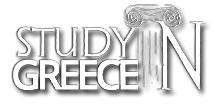The Curriculum is as follows:
| A’ SEMESTER | |||
| CODE | COURSE | Y/Ε | ECTS |
| Y-‐Α1 | Film Theory: From Analogue to Digital Cinema | Y | 12 |
| Y-‐Α2 | Historiography or Television: History & Culture | Y | 12 |
| E-‐Α3 | Research Methodology | E | 6 |
| E-‐A4 | Contemporary Issues in Film and Television Studies I | E | 6 |
| Ε-‐Α5 | Film & Television: Advancing History & Theory | E | 6 |
| TOTAL | 30 | ||
| Β’ SEMESTER | |||
| CODE | COURSE | Y/Ε | ECTS |
| Y-‐Β1 | Historical Cinema: Representing the Past in Fiction and Documentary | Y | 12 |
| Y-‐Β2 | Advanced Topics in Genre and Television | Y | 12 |
| Ε-‐Β3 | Contemporary Filmmaking | E | 6 |
| Ε-‐Β4 | Contemporary Issues in Film and Television Studies II | E | 6 |
| E-‐B5 | Film, Television and Politics | E | 6 |
| TOTAL | 30 | ||
| C’ SEMESTER | ||
| Diploma | MA Thesis | 30 |
| TOTAL ECTS | |
| 90 | |
Course Descriptions
Y-A1 – Film Theory: From Analogue to Digital Cinema
Description: This course explores the fundamental question of film theory, namely, “What is cinema?” by contrasting the basic arguments of classical film theory with the latest developments in theoretical thinking about digital cinema. It covers a wide range of theorists from Arnheim and Kracauer to Elsaesser and Manovich, aiming to approach the complex relationship between film and reality, especially through the transition from analog to digital film production. The goal is to trace the evolution of film theory over the decades and invite a reexamination of key concepts and questions.
Y-A2 – Historiography or Television: History & Culture
Description: The course examines the history of American television as a new technology in the 1920s, its early broadcasts in the 1940s, the national dominance of networks in the 1950s and 1960s, and the contemporary digital and diverse era of television product offerings through various platforms.
Y-B1 – Historical Cinema: Representing the Past in Fiction and Documentary
Description: This course will discuss the representation of history in cinema, combining theories and concepts from written historiography and film theory. It provides an overview of the trajectory of historical studies and film studies as two disciplines sharing morphological, aesthetic, ideological, and institutional elements. The course addresses historical work, whether in written or cinematic form, as a cultural product that produces both knowledge and power in society.
Y-B2 – Advanced Topics in Genre and Television
Description: This course presents the latest theories in genre studies by showcasing contemporary television genres. Each genre is represented through specific television examples that create the necessary framework for applying the theoretical knowledge gained.
E-A3 – Research Methodology
Description: This course promotes students’ research knowledge through critical analysis of research language and various approaches. Students use theoretical concepts to critically evaluate relevant literature and determine how research results can be applied. Students also learn the basic principles of oral presentation and PowerPoint preparation.
E-A3 – Contemporary Issues in Film and Television Studies I
Description: This course focuses on contemporary theories and genres in film and television.
E-A5 – Film & Television: Advancing History & Theory
Description: This course centers on the evolution of television and film aesthetics and quality, placing film and television texts in a social, technological, and productive context.
E-B3 – Contemporary Filmmaking
Description: This course discusses contemporary filmmaking, production methods, historical and technological contexts, theoretical issues, perception, and critique.
E-B4 – Contemporary Issues in Film and Television Studies II
Description: This course focuses on contemporary theories and genres in film and television.
E-B5 – Film, Television and Politics
Description: This course examines significant political themes and theoretical issues found in contemporary films and television narratives, regardless of genre.
Each semester lasts for 13 weeks. During the third semester, students undertake their thesis work. The start and end dates of courses, as well as the duration of examination periods, are determined by the academic calendar, as decided by the Department Assembly.
Y = Mandatory, E = Elective Number of courses per semester: 3 Total ECTS per semester: 30

